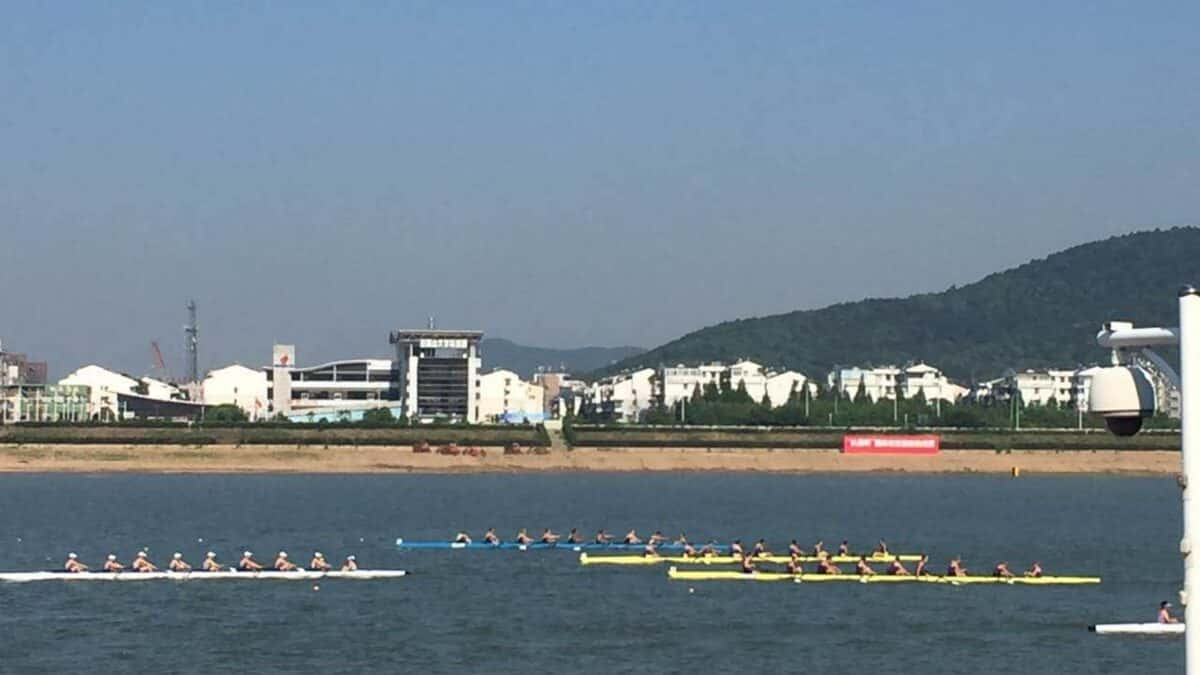
01 Aug 2016
Shanghai and Otago success at Chinese University rowing regatta
The Otago women’s eight set themselves apart early on in the regatta, winning their heat to advance directly to the final. Their winning time of 3.48.91 marked them out as the crew to beat as they established a margin of almost ten seconds ahead of the University of Cambridge, Great Britain.
Italy’s University of Trieste cruised to first in the other heat in 4:14, a full 35 seconds before the second place crew from Xi’an Jiatong University (CHN) meaning the Italians true speed had not yet been tested.
In the final race. Otago was able to maintain the leading position and finished in 3:48.21 while Trieste took second in 3:54.83. Cambridge and the University of London (GBR) rounded out the four boat grand final.
While the Women’s event was dominated by foreign crews, the men’s eight was a completely different story. Chinese crews from Shanghai Jiao Tong University and Wuhan University won two of the three heats in 2:57.84 and 3:14.06 respectively. Both teams had to push through some tough competition though with Sydney University from Australia three seconds behind Shanghai Tong and Harvard University from the United States finishing barely 2.5 seconds behind Wuhan.
Princeton University (USA) also won their heat in 3:27.14, easily defeating the crew from Peking University, who finished half a minute behind them.
The final saw Shanghai and Wuhan in a battle to the line with Shanghai taking the gold in 3:09.31 and Wuhan the silver in 3:10.39. Sydney captured the bronze while Princeton finished fourth.
The International University Rowing Regatta, now in its 7th year has become an annual staple for some of the world’s top university clubs. This year’s event attracted competition from Australia (Sydney University), Great Britain (University of Cambridge, Durham University, University of Warwick, University of London), Italy (University of Trieste), New Zealand (University of Otago), and the United States (Harvard University, Princeton University). There was also several Chinese institutions (Central South University, Peking University, Shanghai Jio Tong University, Wuhan University, Tianjin University of Science & Technology, Xi’an Jiaotong University and Xidian University).
The racing is just a small part of what makes this event such a big deal for those who stage it. Each year the teams take part in a week long cultural exchange that fosters the sharing of innovative ideas on issues of global significance. In this regard, rowing has become one of China’s windows on the world. The links being forged are both institutional and individual as participants gain a valuable lesson on how to find common ground – or common water – between the language and cultural differences.

